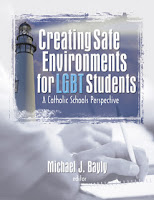Many insightful and erudite commentaries have been written on Barry Jenkins' film Moonlight, which won Best Picture last month at the 89th Academy Awards. My favorite of these commentaries is one written by Stephen A. Russell for the Australian broadcasting station, SBS.
"Moonlight’s historic win, says Russell' "deserves to shine bright and should not be eclipsed by the monumental stuff up that saw presenters Warren Beatty and Faye Dunaway handed the already-announced Best Actress card. . . . Hollywood A-listers looked on aghast as the revelation dropped that the already six-statuette heavy La La Land had been erroneously announced as Best Picture over rightful winner Moonlight, but for all the awful awkwardness, the sheer joy of writer/director Barry Jenkins was unmistakable. 'Even in my dreams, this could not be true, but to hell with dreams, I’m done with it, because this is true. Oh my goodness.'”
Following, with added images and links, is more of Stephen A. Russell's beautiful meditation on Moonlight.
Moonlight is a revelation; the most beautiful gift to cinema in countless years. An incandescent poem wrought in light and sound, it swirls with love at the intersection of race, sexuality and masculinity. Starring Trevante Rhodes, Ashton Sanders and Alex Hibbert, who share the lead role of Chiron at three key moments in this young black man’s life, its strength is in its subtlety, and its willingness to break stereotypes of both black and gay men.
A testament to the fear of opening your heart and receiving love in return, Moonlight brings audiences of any gender or sexuality up to speed with the problems of a world that’s still too slow to embrace a nuanced understanding of black lives and queer sexuality and the trials they face every day. It lays bare the brutality of school bullying - particularly of young queer kids castigated for a love they are yet to fully understand – that tars them with agonising shame.
Mahershala Ali, who plays Juan – a drug dealer who takes the youngest Chiron under his wing – with a staggering grace, rightfully claimed Best Supporting Actor. He is the first Muslim actor to be awarded by the Academy.
[Moonlight's writer/director Barry] Jenkins is not queer, but shares a Liberty City upbringing with playwright Tarell Alvin McCraney, a queer man whose unproduced work for the stage – In Moonlight Black Boys Look Blue - eventually became the film Moonlight. They both grew up with drug-addicted mothers, something McCraney touched on as they accepted together the Adapted Screenplay award at the start of the evening. “Thank god for my mother, who proved to me, through her struggles, and the struggles that Naomie Harris portrayed for you, that we can really be here and be somebody, two boys from Liberty City.”
Acknowledging the immensity of that first of three awards and the power of recognition in the Oscars arena, he added, “This goes out to all those black and brown boy and girls and non-gender conforming who don’t see themselves, we are trying to show you you and us, so thank you, thank you, this is for you.”
Above: Ashton Sanders as the teenage Chiron (right)
and Jharrel Jerome as the teenage Kevin in Moonlight.
Jenkins, speaking first, highlighted the importance of diversity on our screens and made his disdain for the divisive new President clear. “All you people who feel that there’s no mirror for you, that your lives are not reflected, the Academy has your back, the ACLU has your back, we have your back and for the next four years we will not leave you alone, we will not forget you.”
To read Stephen A. Russell's commentary in its entirety, click here.
Above: Trevante Rhodes as the adult Chiron (left)
and André Holland as the adult Kevin in Moonlight.
Of course, no film is above informed critique, and recently on Facebook my friend Bill Lindsey offered just such a critique of Moonlight by highlighting its "unrelenting male gaze." Whether gay or straight, says Bill, it remains a distinctly male gaze, one that reduces the two central female characters to "deeply flawed mother figures who tend to be cardboard cutout figures against whose backdrop the *real* action, the male action, of the plot unfolds." Bill also observes that:
The social worker, a female, who tries to assist Chiron as he goes to the dark side, is presented as a scold whose voice he cannot hear, so that we see her lips move as she speaks, but hear no sound. All of this may very accurately depict the male world this film wants us to open our eyes and see in a way we haven't yet seen it — and that objective is laudable. But as Chiron was being hectored and bullied and assaulted in school, how I longed to hear what his female classmates, the African-American females sitting all around him in the classroom, thought about him and what was being done to him.
While appreciating Bill's astute observations, I also appreciate Alan J. McCornick's response to them via Facebook.
Perhaps I'm being overly sensitive and defensive, Bill, because Moonlight is the best movie I've seen in years - one of the best in my lifetime. I share most of your take in [your] very good review, but part company with your final statement about what the movie does not include. I've always felt that's an unfair criticism to make about a work of art. Largely, because what counts in the end is what people actually do, and not what they think about doing. But also because this movie was made by an exceptionally articulate voice, a black gay male voice, and that voice, in my opinion, should be given its day, unencumbered by other messages. What Chiron's female classmates thought is the stuff of another movie, for another day. I'm reminded of that wonderful Alice Walker line, when criticized by black men for not making them more sympathetic in The Color Purple: "You tell your story, and I'll tell mine."
Related Off-site Links:
Forget the Embarrassing Mix-Up. The Real Story is Moonlight’s Historic Win – Aisha Harris (Slate, February 27, 2017).
The Moonlight Best Picture Win is a Vote for Inclusivity in Hollywood – Matthew Jacobs (The Huffington Post, February 27, 2017).
Moonlight Writer Dedicates Film to All POC and Gender-Nonconforming – Zahara Hill (The Huffington Post, February 27, 2017).
Moonlight is First LGBTQ Film to Win Best Picture – Megan Townsend (GLADD, February 26, 2017).
Will Moonlight Finally Change the Way White People See Black Men? – Jeremy Helligar (SBS, March 22, 2017).
Moonlight Undoes Our Expectations – Hilton Als (The New Yorker, October 24, 2016).
Barry Jenkins' Moonlight Makes the Case for Quiet Eloquence at the Toronto International Film Festival – Justin Chang (The Los Angeles Times,September 11, 2016).

































No comments:
Post a Comment